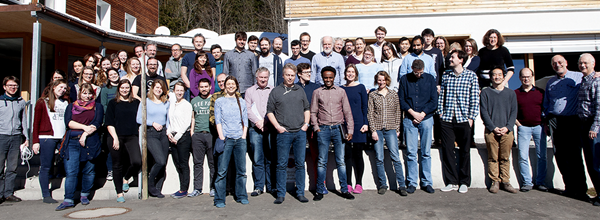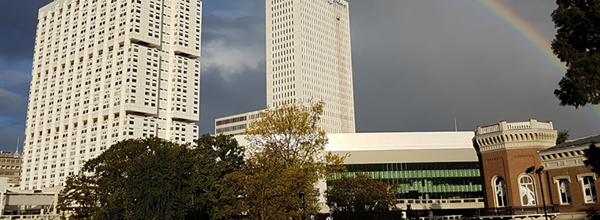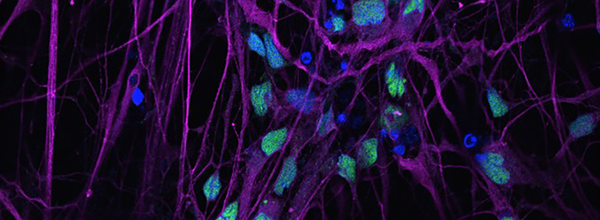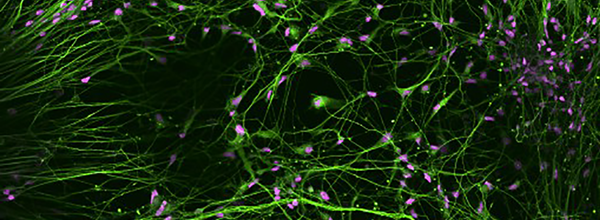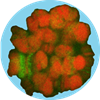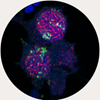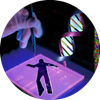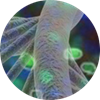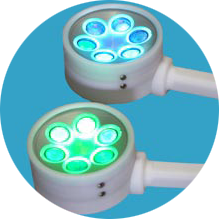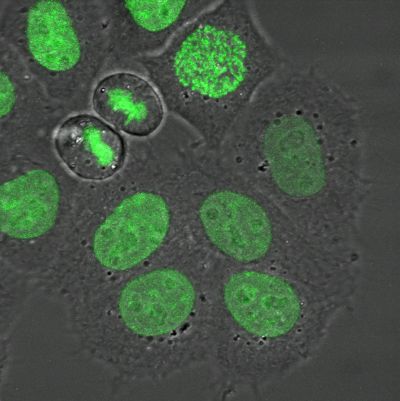Research
Our research, mission and vision
Fundamental Question
Since its establishment about 50 years ago by Hans Galjaard as the Department of Cell Biology and Genetics and its split, the Department of Cell Biology has been recognized internationally for its excellence and important discoveries. With Frank Grosveld (1993-mid 2013) and Danny Huylebroeck (from mid-2013 until June 2022) as chairs, the Department of Cell Biology uses a continuously updated set of biological and technological approaches to advance our understanding of the genetic and molecular basis of cell differentiation in embryogenesis and post-natal development.
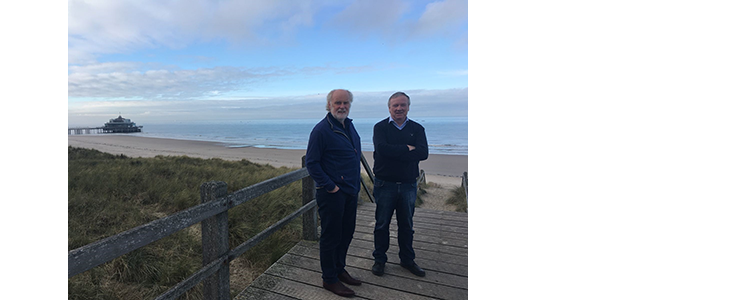
Via intense intra- and extra-departmental collaborations we address the fundamental questions of (i) how cells mount the appropriate transcriptional responses to cell-fate determining instructions, (ii) how cell heterogeneity and plasticity are installed, and (iii) how cells couple this to changes in cell shape and behavior (e.g. motility, guided migration). Such research in our department provides unique opportunities to Erasmus MC for applying fundamental principles from cell and developmental biology to tissue/organ repair and congenital and chronic diseases. However, it also requires us to master many scientific-technological challenges at departmental scale.
Organization
Recently we decided to build our research on 5 pillars:
- The organization of the cell nucleus, with focus on proteins and architectural genomic principles that regulate chromatin folding and remodeling.
- The regulation of developmental gene transcription, by concerted action of transcription factors and their co-factors, epigenetic regulators and (distant) regulatory elements in the genome.
- Cell biological studies, with emphasis on cellular processes that dynamically regulate adaptive changes in cell behavior. So, this pillar studies cytoplasmic structures and/or processes, with main focus on the microtubule cytoskeleton and its associated proteins, supplemented by studies of instructed cell behavior impacting on cell shape changes and migration, and signal processing via primary cilia.
- Novel technologies, i.e. genomics, perturbation screening, and organoids.
- Systems Biology and Gene/Protein Network analysis.
Mission and Vision statements
Our mission is to do fundamental research towards the generation of cell diversity and function via instructed cell differentiation. For this, we study primarily the regulation of developmental gene expression and how its precision is achieved in the context of dynamic structural organization of the genome.
Our vision is to remain an internationally renowned department for its studies of functions and action modes of key regulatory proteins, and their molecular networks, in individual or populations of cells in tissues/organs, animal models as well as human cells, in normal and counterpart pathologic processes.
A major aim is to apply this knowledge in the development of improved diagnostics and therapy, within Erasmus MC and beyond.
At the moment Prof. dr. Joost Gribnau is interim head of the Department of Cell Biology, Erasmus MC
Ee-building, 10th floor, room Ee-1040
Dr Molewaterplein 40, 3015 GD, Rotterdam
m.vangeest@erasmusmc.nl
Tel: +31 10 7043169
Principal Investigators
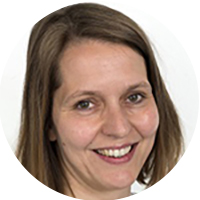 |
Debbie van den Berg Developmental neurobiology |
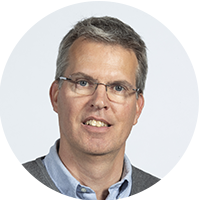 |
Gert Jansen |
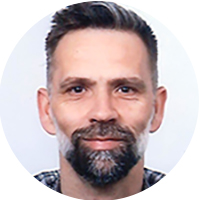 |
Derk ten Berge Stem cell and developmental biology |
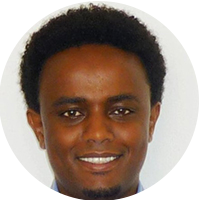 |
Eskeatnaf Mulugeta Developmental genomics and systems biology |
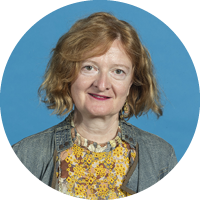 |
Dubravka Drabek Generation of human antibodies from transgenic mice |
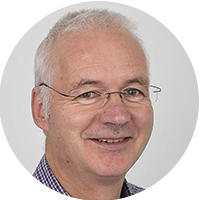 |
Sjaak Philipsen Molecular control of erythropoiesis; Reversing the Switch |
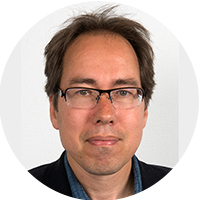 |
Maarten Fornerod The role of lipid signaling in cell cycle progression, neuronal development and transcriptional regulation |
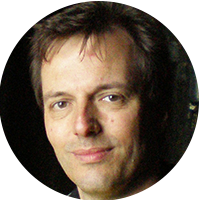 |
Raymond Poot Transcriptional regulators of cognition |
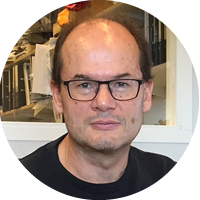 |
Niels Galjart Control of cell shape and function |
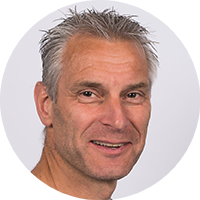 |
Robbert Rottier Lung development; linking basic science to clinical questions |
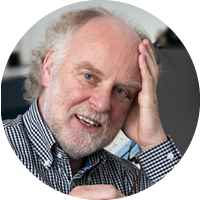 |
Frank Grosveld Regulation of transcription |
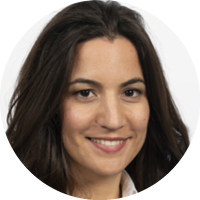 |
Ana Ruiz-Saenz Molecular mechanisms underlying cancer progression |
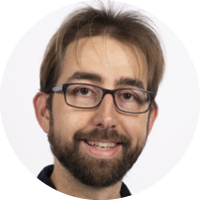 |
Jeffrey van Haren Understanding and controlling cellular guidance mechanisms |
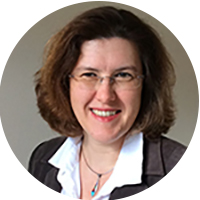 |
Kerstin Wendt Cohesin and chromatin organization |
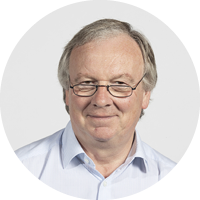 |
Danny Huylebroeck |
|
Facilities
The Department of Cell Biology is part of the Biomedical Sciences theme and has access to a number of facilities.
The Mass spectrometry facility, headed by Dr. Jeroen Demmers, is in the Erasmus Centre of Proteomics. Proteins (and protein-modifications) from our purifications are identified within days, using the latest, ultra-sensitive, equipment. This facility, combined with the biochemical expertise within the department, provides an ideal environment for the identification and characterization of protein interactions.
The Erasmus Center for Biomics is the Erasmus MC Genomics Core Facility, headed by Dr. ir. Wilfred van IJcken. It provides services and expertise for Next Generation Sequencing for all kinds of applictions (gene expression analysis, genome accessibility, genome conformation, variant detection, and many others) and a number of other genome-related techniques, which will save time in your research and provides easy opportunity for new research venues.
In the Applied Optical Imaging Centre, we have access to the latest microscopy technology and expertise, including a 4Pi microscope for high optical resolution, a 2-photon microscope, and several confocal microscopes, especially adapted for different aspects of FRAP, FLIP and FRET technology.
The Erasmus MC iPS core facility has been founded to support fundamental and translational research by providing high quality iPS cell lines and embryonic stem (ES) cell lines to researchers within and outside the Erasmus MC.
In our mouse transgenics facility, we use the latest techniques to make mouse (conditional) knock-outs and knock-ins and derive (ES) cell lines and other cells from mice.
Our Fluorescence-Activated Cell Sorter (FACS) allows rapid separation of live and fixed cells, based on fluorescence (by immunochemistry and fluorescent proteins such as GFP).
Related departments
The Department of Cell Biology is embedded in the Biomedical Sciences Theme which comprises the departments of Cell Biology (Danny Huylebroeck), Molecular Genetics (Roland Kanaar), Biochemistry (Peter Verrijzer), Developmental Biology (Joost Gribnau), Genetic Identification (Manfred Kayser) and Neurosciences (Chris de Zeeuw).

Collaborations (from 2013-present)
Local Collaborations
- Examples of intradepartmental collaborations are:
- Those connecting studies of chromatin regulation, epigenomics and TF actions in differentiation of various cell types. An important recent connector is targeted chromatin conformation analysis (using T2C) for studying aspects of transcription regulation of specific loci.
- Studies of pluripotent states of cells of pre- and early post-implantation mammalian embryos, on exit from pluripotency, and (shared with the department of Developmental Biology in our Theme of Biomedical Sciences) of ETS and ETX embryos, blastoids and gastruloids.
- Neurodevelopment studies, centered around transcription factor (TF) proteomics, TF-TF and TF-chromatin remodeler co-operation, (release of) RNAPol2 pausing, ES/iPS cell neural differentiation and cerebral organoids, with a keen eye for neurodevelopmental disorders and modeling thereof in cell and/or animal models.
- Those connecting other pillars, i.e. esiRNA and CRISPR-based targeted perturbations (of BMP-Nodal and Wnt system components and transcription regulatory networks, TRNs) in ES cell based hematopoietic and neural differentiation, taking this now to single-cells and multi-omics read-outs.
- Cell biology studies, e.g. visualizing BMP-Smad activity in cells and embryos with new reporters, and studies of microtubule dynamics, primary cilia and cell migration.
- Various technologies are uniting factors: omics-bioinformatics combinations, including ChIP-Seq, expression profiling and protein network analysis.
- Examples of interdepartmental collaborations (with the listed departments, outside the Theme of Biomedical Sciences) that significantly broaden fundamental biology and (pre)clinical research within Erasmus MC, with constant input from bench to bed and vice versa, include those with
Internal Oncology (triple-negative breast cancer), Neurosurgery (BMP signalling in recurrent glioma), Clinical Genetics (cytokinesis in developing brain cortex, neuronal migration disorders, TGFβ-system in aneurysm, autism-macrocephaly incl. in zebrafish, non-canonical cohesin subunits in patients), Hematology (developmental erythropoiesis), Psychiatry (iPS-derived neurons, neuro-psychiatric/developmental disease), Pulmonary Medicine (epigenetics in allergic asthma), Pediatric Surgery (lung repair and disease, organoids), Cardiology (heart development), Epidemiology (head size GWAS biological annotation), Surgery (modelling infectious disease in organoids), Otorhinolaryngology and Head and Neck Surgery (chondrogenesis, osteogenesis), OIC (triple-color dSTORM and super-resolution imaging of cohesin and TFs). Many of these collaborations also serve local Academic Centers, e.g. Systems Biomedicine (coord: Cell Biology), Hemoglobinopathies and Acquired Anemias (coord: Cell Biology), SCORE (current coord. from Cell Biology) and Atrial Fibrillation.
National and International Collaborations
- Examples of national collaborations are these with
Leiden Univ/LUMC BMP-Smad signalling; Mummery and de Chuva de Sousa Lopes), Hubrecht Institute in Utrecht (Zeb2 in infarcted heart; van Rooij; cytoskeletal and gene/protein network changes during HSC emergence; Robin; WNT-stimulation protocols in serum-free human organ stem cells; with Clevers), Immunology in Utrecht (Wnt signalling in T cells; Coffer), Sanquin Research in Amsterdam (transcriptional control of erythroid development; von Lindern-van den Akker), NKI in Amsterdam (functional SNP annotation in human NSCs, van Steensel; development of erythroid progenitors, Jacobs), ERIBA in Groningen (de Haan), Radboud Univ. in Nijmegen) (epigenetic characterization of pluripotency states in early embryos, Marks; epigenome of hematopoietic development, Stunnenberg).
- Project-based, individual international collaborations are numerous. Examples are
A. Papantonis, A. Rada-Iglesias (both Cologne), D. Fitzpatrick (Edinburgh), B. Ren (San Diego), K. Maeshima (Mishima), U-M. Bauer (Marburg), C. Bonifer (Birmingham), J. Borg, A. Felice (Valetta), M. Busslinger (Vienna), M. Crossley (Melbourne), S-L. Thein (Bethesda), L. Gutierrez (Oviedo), R. Hardison (Pennsylvania), D. Higgs (Oxford), B. Lenhard (London), M. Wachsmuth, J. Lewis (both Heidelberg), M. Kleanthous, C. Lederer (Nicosia), A-R Migliaccio (Bologna), H. Najmabadi (Tehran), G. Patrinos (Patras), G. Suske (Marburg), L. Tora (Strasbourg), V. Viprakasit (Bangkok), S. Wilson (Newcastle), M. Yamamoto (Sendai), L. Zon (Boston), C. Verfaillie, M. Sampaolesi, E. Seuntjens, J-C. Marine, A. Zwijsen, A. Luttun, F. Lluis, L. Jones (all Leuven), G. Berx, S. Goossens, F. van Roy, B. Lambrecht (all Gent), L. Nguyen (Liège), A. Del Sol Mesa (Luxembourg), I. Chambers (Edinburgh), B. Lenhard, F. Guillemot (both London), R. Patient (Oxford), V. Janzen (Bonn), M. Sereda, K-A. Nave (Göttingen), T. Braun, G. Dobreva (both Bad Nauheim), N. Urbán, N. Rivron (both Vienna), W. Wurst, M. Drukker, M. Götz (all Munich), G. Meister (Regensburg), C. Zweier (Erlangen), N. Bondurand (Créteil), H. Cremer (Marseille), T. Walzer (Lyon), C. Andrieu-Soler, E. Soler (both Montpellier), R. Sedlacek (Prague), L. Garavelli (Reggio Emilia), R. Ashery-Padan (Tel Aviv), J. Haigh (Melbourne), H. Kondoh (Kyoto), L. Hui (Shanghai), R.Q. Lu (Cincinnati), A. Goldrath (La Jolla), E. McNally (Chicago), A. Debant (Montpellier), A. Andrieux, I. Arnal (Grenoble), M. Mogensen (East Anglia), T. Wittmann (San Francisco), L. Wilson (Santa Barbara), H. Maiato (Porto), L. Sayas (Tenerife).
